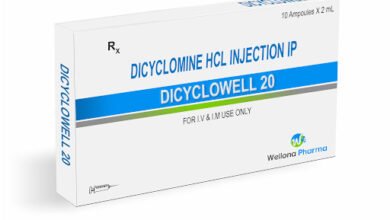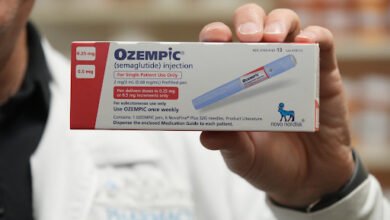Why Does It Hurt When I Swallow: 8 Possible Causes

Swallowing comes naturally to us. It happens naturally and might be annoying when it hurts. Odynophagia is the medical name for unpleasant swallowing. An infection, an inflammation, or an obstruction might bring on swallowing pain. It’s usually better to be safe than sorry, even while there’s a slight chance that your swallowing problems pose a serious health danger.
Have you ever wondered, “Why does it hurt when I swallow?” That uncomfortable feeling can catch you off guard, making even the simplest task of swallowing your food or drink painful. In this article, we’ll break down the common reasons behind that pesky throat discomfort.
What are some possible causes of pain while swallowing?
You could have pain when swallowing for a variety of causes. We have listed some of the most common reasons below.
1. Flu, the cold, or a sinus infection.
One of these typical ailments is often indicated by a sore throat that makes swallowing unpleasant. It could appear a day before other signs and symptoms like a cough and runny nose.
If it’s cold, you’ll need to relax and drink plenty of fluids while waiting. You should visit a doctor if you think you could have the flu, which is significantly more severe and uncomfortable than a cold.
As the infection progresses, trying to swallow while having a sinus infection might irritate your throat and make it unpleasant.
2. Tonsillitis
Tonsils are two lymph nodes located in the back of the throat. Tonsillitis is an inflammation and infection of the tonsils. The most typical reason for uncomfortable swallowing is tonsillitis.
Tonsillitis is an infectious disease. Tonsillitis may be brought on by viruses or bacterial diseases, such as strep throat. People may also notice swollen tonsils, white or yellow patches on the tonsils, poor breath, sore jaw or neck, and fever if tonsillitis is the cause of their swallowing pain.
Also Read: How To Cure Tonsillitis Permanently?
3. Strep throat
This bacterial illness, often known as strep, can be excruciatingly unpleasant. Not having the typical cold symptoms or a cough are some obvious indicators of strep.
Adult cases of strep throat typically present with a sudden sore throat, possibly accompanied by a fever and swollen lymph nodes in the neck. Children three years older may also experience a sore throat, nausea, and vomiting. Strep normally doesn’t affect children under the age of two.
Visit your doctor for a throat culture or a quick strep test, which can detect infections the fast test occasionally misses. The normal course of action is antibiotics. Although HPV will go away on its own, getting treated is advised to feel better, stop it from infecting others, and avoid consequences.
4. Injured throat
Though less frequent than other factors, an injury to the throat can also produce discomfort during swallowing. Too-hot food or drink can cause the throat or food pipe to burn when consumed.
Eating a cracker or chip with a sharp edge can also cause people to scratch or cut the back of their throat. There may be pain on one side of the throat or farther down in the food pipe, depending on the location and severity of the damage.
5. Esophagitis
The pipe that transports food and liquid from the mouth to the stomach is the food pipe, commonly known as the esophagus. Esophagitis is esophageal inflammation.
Gastric reflux disease, which permits stomach acid to run back up the food pipe, is the most frequent cause of Esophagitis. Specific drugs and allergic responses can also bring on Esophagitis.
Along with difficulty swallowing, chest pain, stomach pain, a hoarse voice, coughing, heartburn, and nausea, Esophagitis can also result in the following symptoms.
6. Oral thrush
Cytomegalovirus, related to the viruses that cause herpes and mono, can alternate between active and dormant phases. You may also have weariness, muscle aches, fever, nausea, and vomiting if CMV is the reason.
Healthy eating and adequate rest will aid your body in fighting the virus, but if you’re pregnant, have HIV infection, or have a weaker immune system, visit a doctor since CMV can be especially dangerous for you.
7. Taking Medicine or Eating.
Nothing should adhere to or aggravate your esophagus. Large, round, and lighter pills are harder to get through than small, heavier, oval pills. It may also occur if you swallow a piece of sharp food.
Take a pill with at least a half-cup of water, and sit up straight for at least 10 minutes afterward to avoid this. If the medication is known to irritate, sip some water and avoid lying down for at least 30 minutes.
8. Herpes Simplex Virus
Type 1 of this virus can lead to ulcers in the mouth and along the lips and discomfort when swallowing. The sores disappear in a few days, but if this is your first outbreak or if you have HIV, call your doctor right once. Avoid eating acidic foods like citrus, get enough rest, and attempt to reduce stress while healing.
Also Read: Step-by-Step Guide: How to Get Tested for Herpes
How can you prevent pain while swallowing?
You can take many preventative measures to avoid sore throats and painful swallowing. It’s better to maintain proper hygiene and stay away from bacteria that spread sickness. Here are some strategies for avoiding a sore throat:
- Avoiding direct touch with sick people.
- Avoid putting your mouth near public fountains.
- Using hand sanitizers with alcohol in them.
- Stay away from sharing meals, beverages, and utensils.
- It would be best not to touch your face, mouth, eyes, or nose.
- Spending at least 20 seconds hand-washing.
What are some home remedies to prevent pain while swallowing?
Over-the-counter medications and home treatments can treat a sore throat and painful swallowing. If your sore throat isn’t too bad, you can avoid going to the doctor using products you already have at home to treat the discomfort.
- Keeping hydrated and calming and moisturizing your throat are achieved by drinking plenty of liquids. Your issue can be resolved by consuming at least eight cups of water each day.
- Gargling with salt water will also lessen pain and swelling in the back of your throat.
- To prevent the smoke from aggravating and exacerbating the pain, it is advised to refrain from smoking while you have a sore throat.
- Warm herbal teas with honey can help reduce throat swelling and soreness. Green tea, turmeric, licorice root, and slippery elm tea are well-known teas that make you feel better, yet no scientific evidence supports this.
- A humidifier raises the relative humidity in space by converting water to moisture in the air. Inhaling wet air will reduce throat irritation and decrease pain.
Conclusion – Why does it hurt when I swallow?
Swallowing pain could indicate more serious throat problems. Fortunately, you can frequently relieve your symptoms using natural therapies, over-the-counter medications, or antibiotics. A sore throat frequently goes away on its own, but you should visit a doctor if it is severe or persists for more than a week.
Also Read: Why Does my Throat Hurt When I Wake Up?
Source link
#Hurt #Swallow



